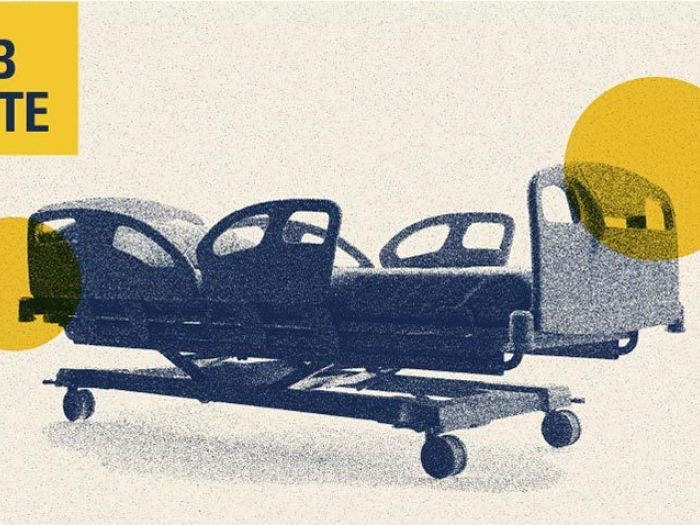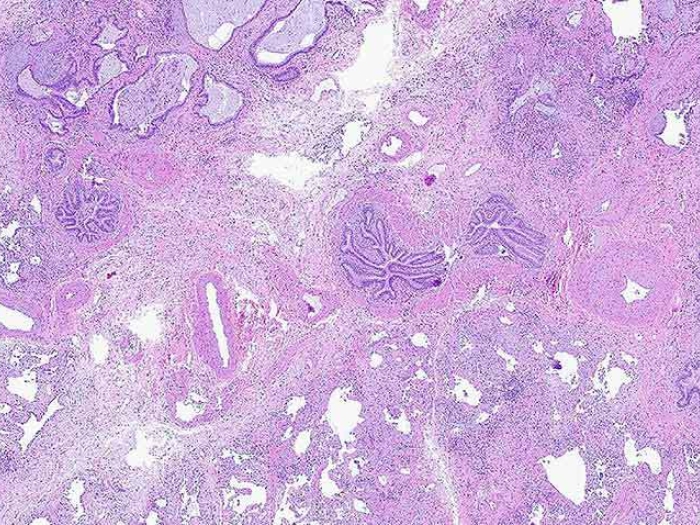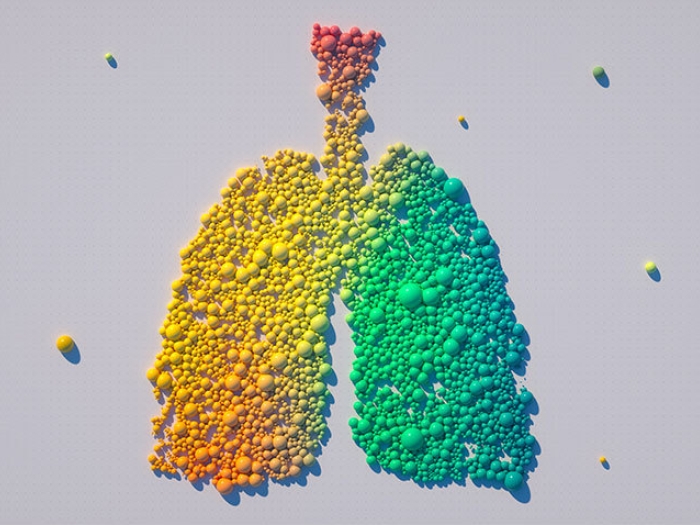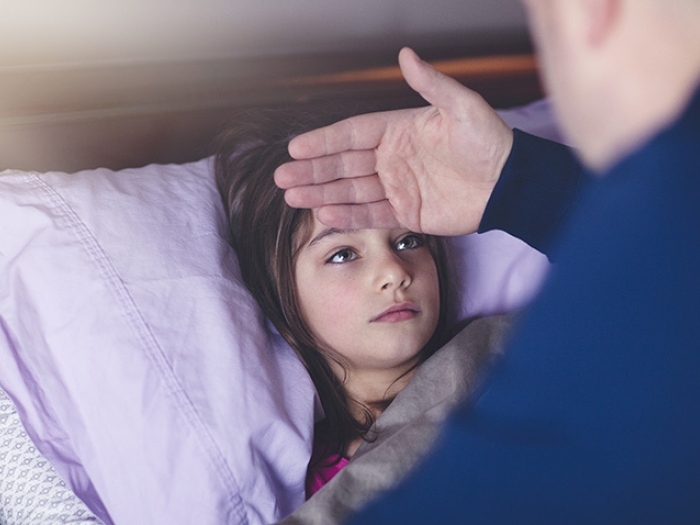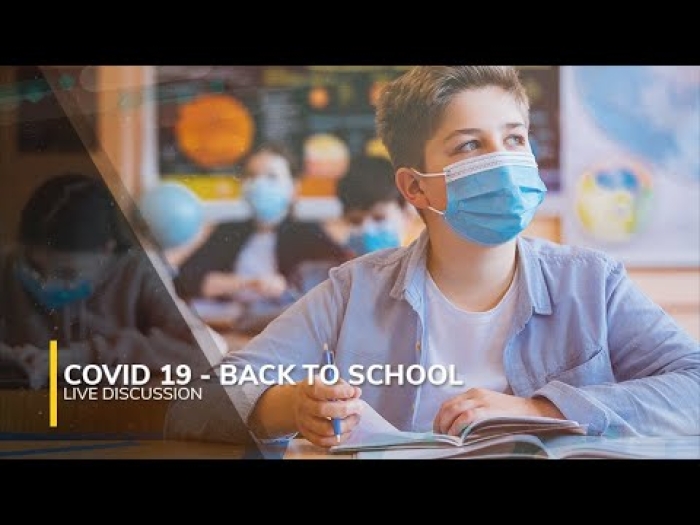Many adults experience problems like coughing, chest pain, and fatigue 6 months after their stay
11:10 AM
Author |
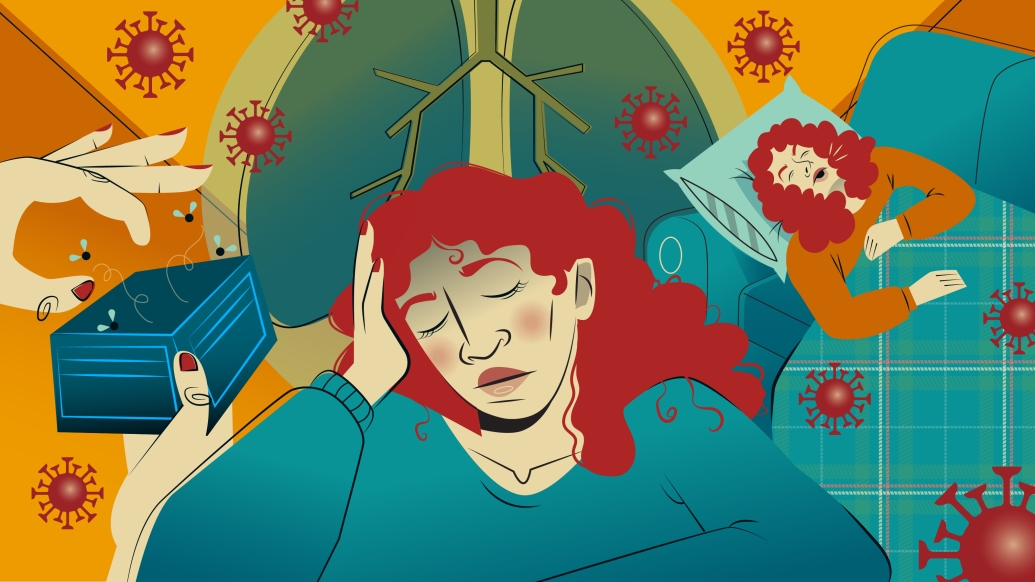
About half of adults treated at hospitals for COVID-19 have experienced lingering symptoms, financial difficulties, or physical limitations months after being discharged, according to a National Institutes of Health-supported study published in JAMA Network Open.
After six months, more than seven in 10 adults surveyed in the study experienced cardiopulmonary problems, such as coughing, rapid or irregular heartbeat, and breathlessness, while about half had fatigue or physical limitations – all symptoms associated with long COVID. Additionally, more than half of the adults said they faced financial challenges.
The findings came from the PETAL Network's Biology and Longitudinal Epidemiology: COVID-19 Observational, also known as BLUE CORAL, study, which is supported by the National Heart, Lung, and Blood Institute, part of NIH.
“My clinic patients often want to know how soon they’ll get back to their usual health,” said Andrew J. Admon, M.D., M.P.H., the study’s first author, an assistant professor in the departments of internal medicine and epidemiology at the University of Michigan Medical School and pulmonologist at LTC Charles S. Kettles VA Medical Center in Ann Arbor. “Based on these data, it seems that many people hospitalized for COVID-19 should expect symptoms to last for up to six months or even longer.”
To conduct the analysis, researchers assessed data from the medical records and follow-up surveys of 825 adults who received treatment for COVID at one of 44 medical centers in the United States between August 2020 and July 2021. Patients were surveyed one, three, and six months after leaving the hospital for general or intensive care treatment.
The researchers found that six months after being hospitalized:
- Three-fourths of patients, 75%, had at least one cardiopulmonary problem, such as cough, chest problems; swelling in their legs, ankles, and feet; or a need for home oxygen support. This represented an increase from the first month, when 67% of patients reported experiencing problems like these.
- More than half of patients, 51%, felt fatigued compared to 41% who did so after one month. Almost one in five adults, 18%, felt tired every day.
- More than half of patients, 56%, experienced a financial difficulty such as being unable to pay bills, compared to 66% who had problems after one month. Hispanic and Black participants, as well as participants who reported financial difficulty at one month, were more likely to have experienced financial challenges during the sixth month.
- Some 47% of patients reported limitations doing everyday activities, such as eating, preparing meals, bathing, getting dressed, or walking across a room, which represented an improvement compared to the first month, when 55% of patients experienced such limitations.
- Symptoms came and went for some patients, creating intervals of recovery. For instance, some adults were free of symptoms after one month but developed symptoms such as heart and chest problems later.
“These findings will inform programs designed to help adults recover from severe cases of COVID and guide how physicians should check in with patients in the year following hospitalization,” said Jim P. Kiley, Ph.D., the director of NHLBI’s Division of Lung Diseases. “They may also help shape future clinical research studies.”
For a bigger picture, other studies, like the Household Pulse Survey, have suggested that half of U.S. adults have reported having COVID. International data suggest that about 1 in 13 adults, 6-7%, who have had symptomatic COVID infections still experienced symptoms months later. Based on research published in JAMA, symptoms lasted for about four months for those who recovered outside of the hospital compared to nine months for those who received hospital care.
To learn more about BLUE CORAL.
To learn about NIH research activities to prevent and treat long COVID, visit Researching COVID to Enhance Recovery or ClinicalTrials.gov.
Paper cited: “Assessment of Symptom, Disability, and Financial Trajectories in Patients Hospitalized for COVID-19 at 6 Months,” JAMA Network Open. DOI: 10.1001/jamanetworkopen.2022.5579

Explore a variety of health care news & stories by visiting the Health Lab home page for more articles.

Department of Communication at Michigan Medicine
Want top health & research news weekly? Sign up for Health Lab’s newsletters today!
